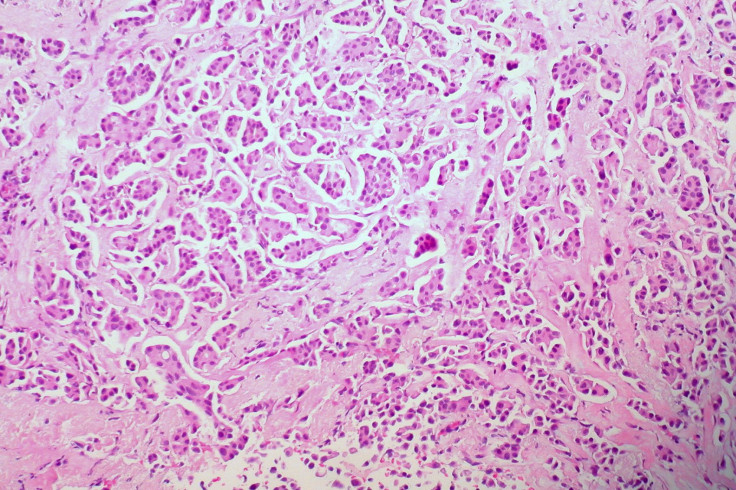Nearly Half Of A Person's Testicular Cancer Risk Is Inherited From Their Parents

Most men blame their parents for a lot of aspects of their life that they disagree with. Their weight, their hair, their skin or eye color, or that they weren’t tall enough to make it to the NBA. A new study shows these people may have one more thing to trace back to their parents: a higher risk of developing testicular cancer.
According to Scientists at The Institute of Cancer Research in London, along with colleagues in Germany, Sweden, and the U.S., almost half of the risk of developing testicular cancer comes from the DNA passed down from our parents.
The research suggests that genetic inheritance of testicular cancer is much more important than in most other cancer types, in which genetics only make up about 20 percent of the risk. Testing for a range of genetic variants linked to testicular cancer could prove to be effective in finding who is more at risk of developing the disease, as well as creating new ways of treating and preventing it.
"Our study has shown that testicular cancer is a strongly heritable disease. Around half of a man's risk of developing testicular cancer comes from the genes he inherits from his parents — with environmental and behavioral factors contributing to the other half,” said Dr. Clare Turnbull, senior researcher in Genetics and Epidemiology at The Institute of Cancer Research, in a press release.
The researchers used statistical analysis from two large testicular cancer studies. One examined patterns of ancestral testicular cancer in family groups across 15.7 million people from the Swedish Population Registry cancer family database, including 9,324 cases of testicular cancer. The other looked at the genetic code of 6,000 UK men from two previous testicular cancer studies, 986 of whom had been diagnosed with the disease. Combining these analyses showed that 49 percent of all possible risk factors regarding testicular cancer were inherited.
"Our findings have important implications in that they show that if we can discover these genetic causes, screening of men with a family history of testicular cancer could help to diagnose those at greatest risk, and help them to manage that risk,” Turnbull said.
The research found that the inherited risk comes from a large number of minor variations in DNA code, instead of one faulty gene with a big effect. Though there has been major progress in trying to identify the mutations associated with the testicular cancer risk, the researchers found that only 9.1 percent of the risk of developing the disease could be attributed to those mutations. That means that the majority of these genetic variations have yet to be identified.
"[O]ur study also shows that much work remains to be done. There are a lot of genetic factors that cause testicular cancer, which we are yet to find — so the first step must be to identify the genetic drivers of testicular cancer so we can develop new ways to prevent it," Turnbull said.
Source: Turnbull, C, et al. Quantifying the heritability of testicular germ cell tumour using both population-based and genomic approaches. Scientific Reports. 2015.
Published by Medicaldaily.com



























